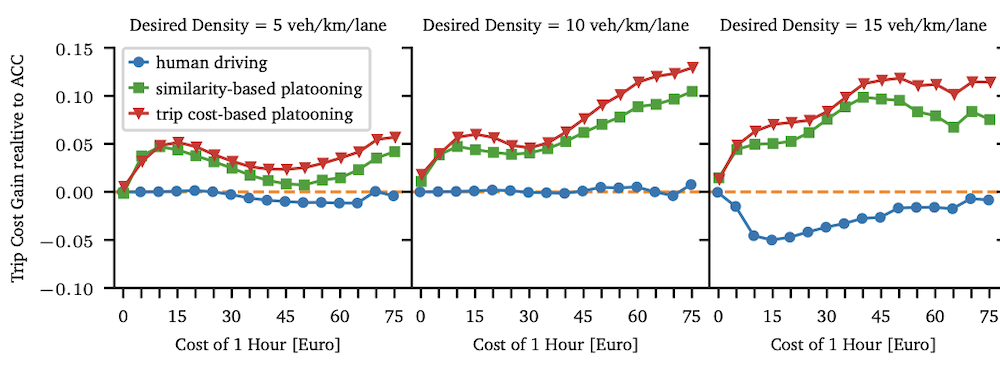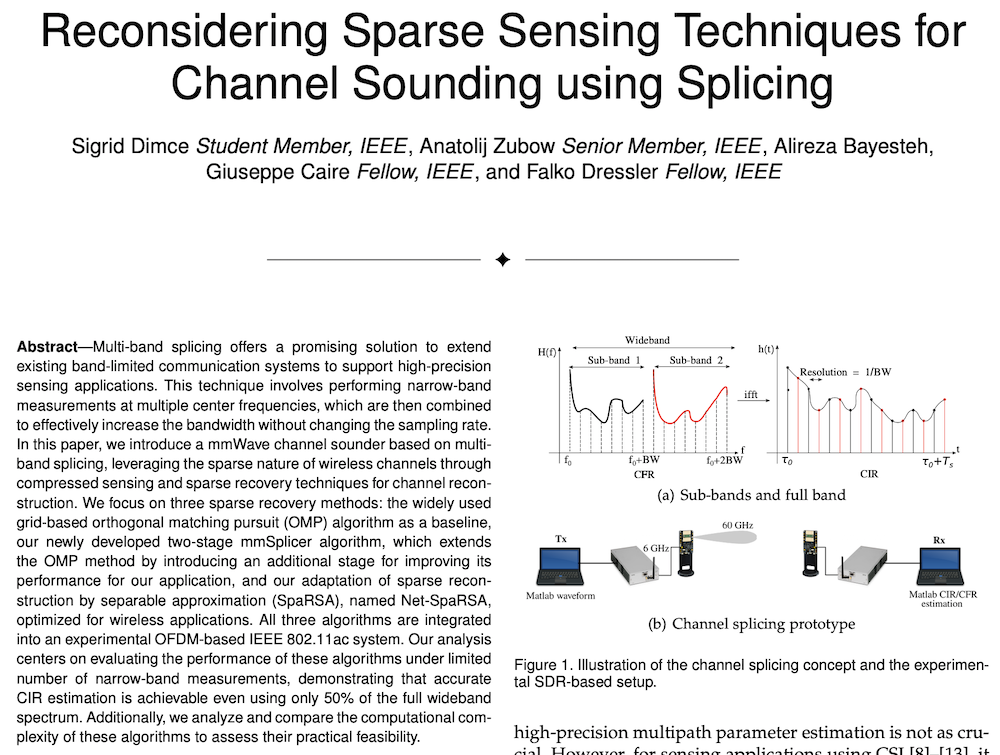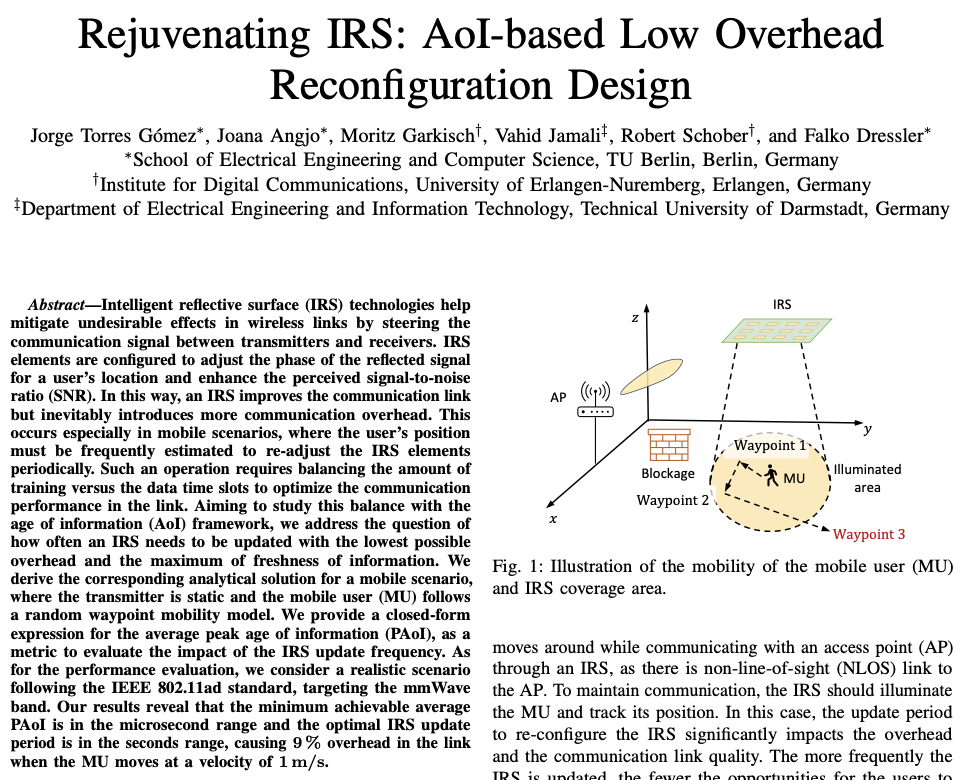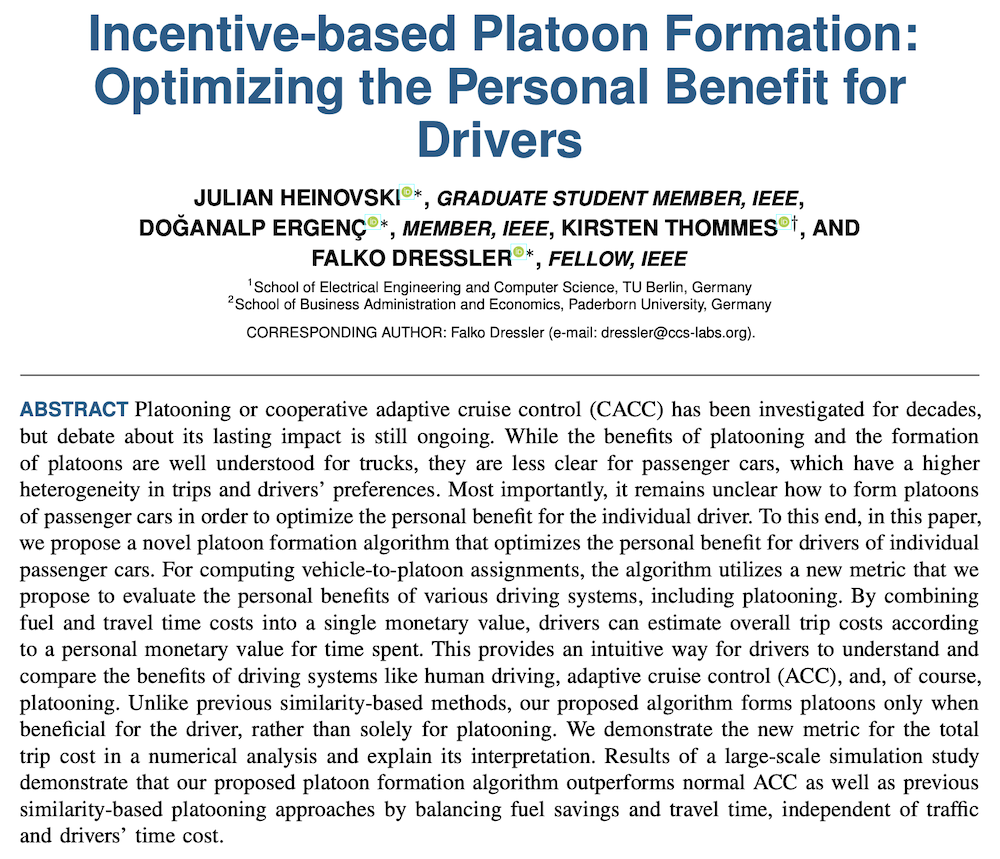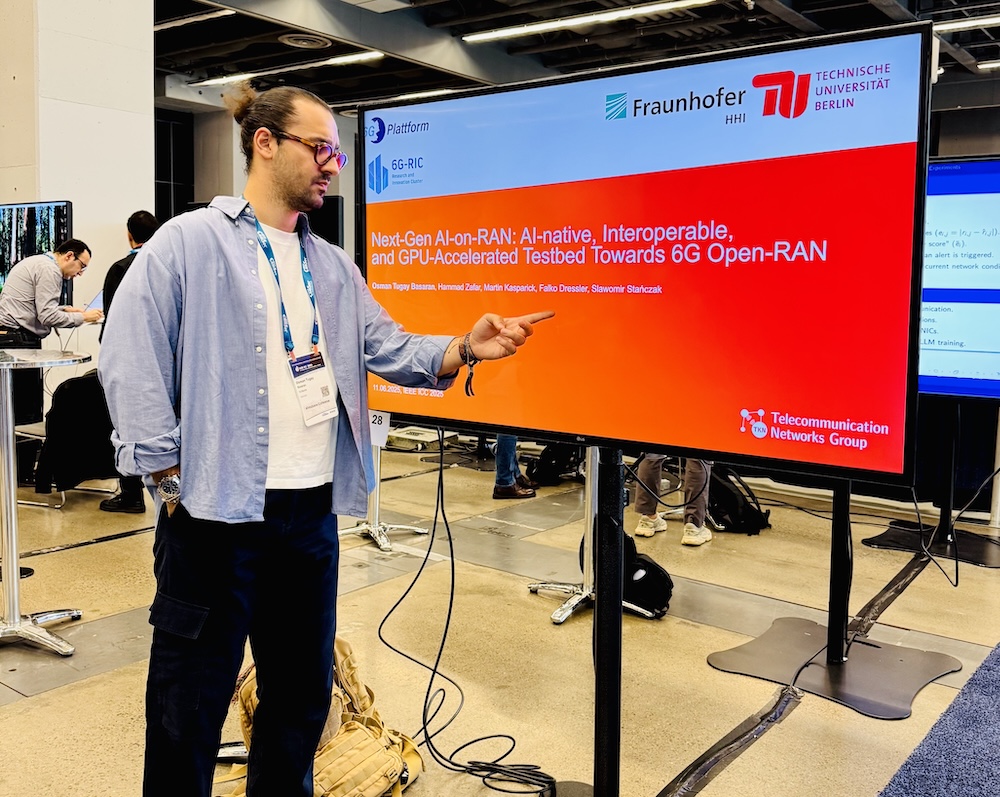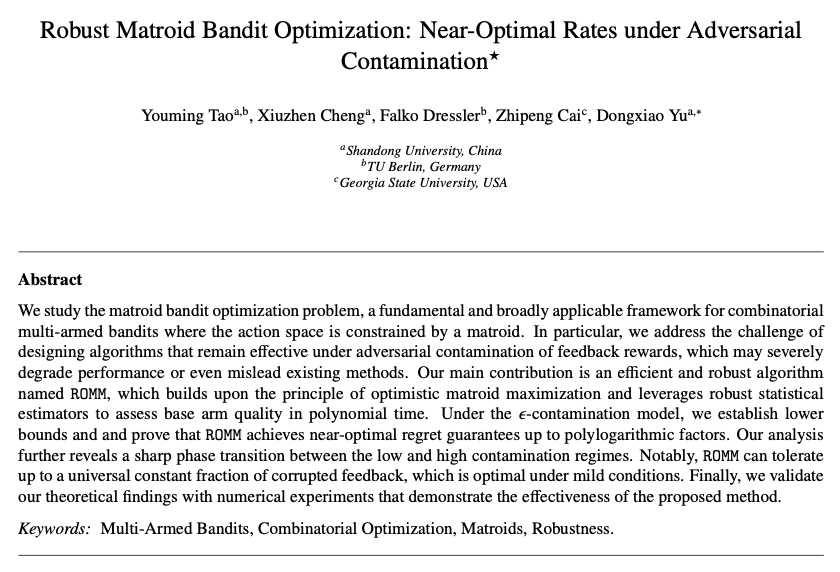Literature Database Entry
nordin2012impact
Noorsalwati Nordin and Falko Dressler, "On the Impact of Beacon Collisions in Co-located IEEE 802.15.4-based Networks," Proceedings of 31st IEEE Conference on Computer Communications (INFOCOM 2012), Student Activities, Orlando, FL, March 2012.
Abstract
IEEE 802.15.4 has become the de-facto standard in many areas of wireless communications including wireless sensor and body area networks in industrial automation and healthcare domains. Such pervasive usage will involve multiple networks with overlapping transmission and interference areas, operating uncoordinated. IEEE 802.15.4 defines a node synchronization strategy using beacons for achieving robust low energy communication. Nonetheless, collisions are inevitable as some packets, e.g., the synchronization beacons are sent without carrier sensing. Consequently, co-located networks may substantially suffer from beacon collisions. We present early performance evaluation results involving multiple co-located networks. In an extensive set of simulation experiments, we found that the number of lost beacons is independent of the amount of superframe overlap, but is a major cause of performance degradations. We conclude that distributed coordination is necessary. Therefore, our ongoing work includes the development of adaptive inter-network beacon coordination schemes.
Quick access
Authors' Version ![]() (PDF on this web site)
(PDF on this web site)
BibTeX ![]()
Contact
Noorsalwati Nordin
Falko Dressler
BibTeX reference
@inproceedings{nordin2012impact,
author = {Nordin, Noorsalwati and Dressler, Falko},
title = {{On the Impact of Beacon Collisions in Co-located IEEE 802.15.4-based Networks}},
publisher = {IEEE},
address = {Orlando, FL},
booktitle = {31st IEEE Conference on Computer Communications (INFOCOM 2012), Student Activities},
month = {3},
year = {2012},
}
Copyright notice
Links to final or draft versions of papers are presented here to ensure timely dissemination of scholarly and technical work. Copyright and all rights therein are retained by authors or by other copyright holders. All persons copying this information are expected to adhere to the terms and constraints invoked by each author's copyright. In most cases, these works may not be reposted or distributed for commercial purposes without the explicit permission of the copyright holder.
The following applies to all papers listed above that have IEEE copyrights: Personal use of this material is permitted. However, permission to reprint/republish this material for advertising or promotional purposes or for creating new collective works for resale or redistribution to servers or lists, or to reuse any copyrighted component of this work in other works must be obtained from the IEEE.
The following applies to all papers listed above that are in submission to IEEE conference/workshop proceedings or journals: This work has been submitted to the IEEE for possible publication. Copyright may be transferred without notice, after which this version may no longer be accessible.
The following applies to all papers listed above that have ACM copyrights: ACM COPYRIGHT NOTICE. Permission to make digital or hard copies of part or all of this work for personal or classroom use is granted without fee provided that copies are not made or distributed for profit or commercial advantage and that copies bear this notice and the full citation on the first page. Copyrights for components of this work owned by others than ACM must be honored. Abstracting with credit is permitted. To copy otherwise, to republish, to post on servers, or to redistribute to lists, requires prior specific permission and/or a fee. Request permissions from Publications Dept., ACM, Inc., fax +1 (212) 869-0481, or permissions@acm.org.
The following applies to all SpringerLink papers listed above that have Springer Science+Business Media copyrights: The original publication is available at www.springerlink.com.
This page was automatically generated using BibDB and bib2web.

